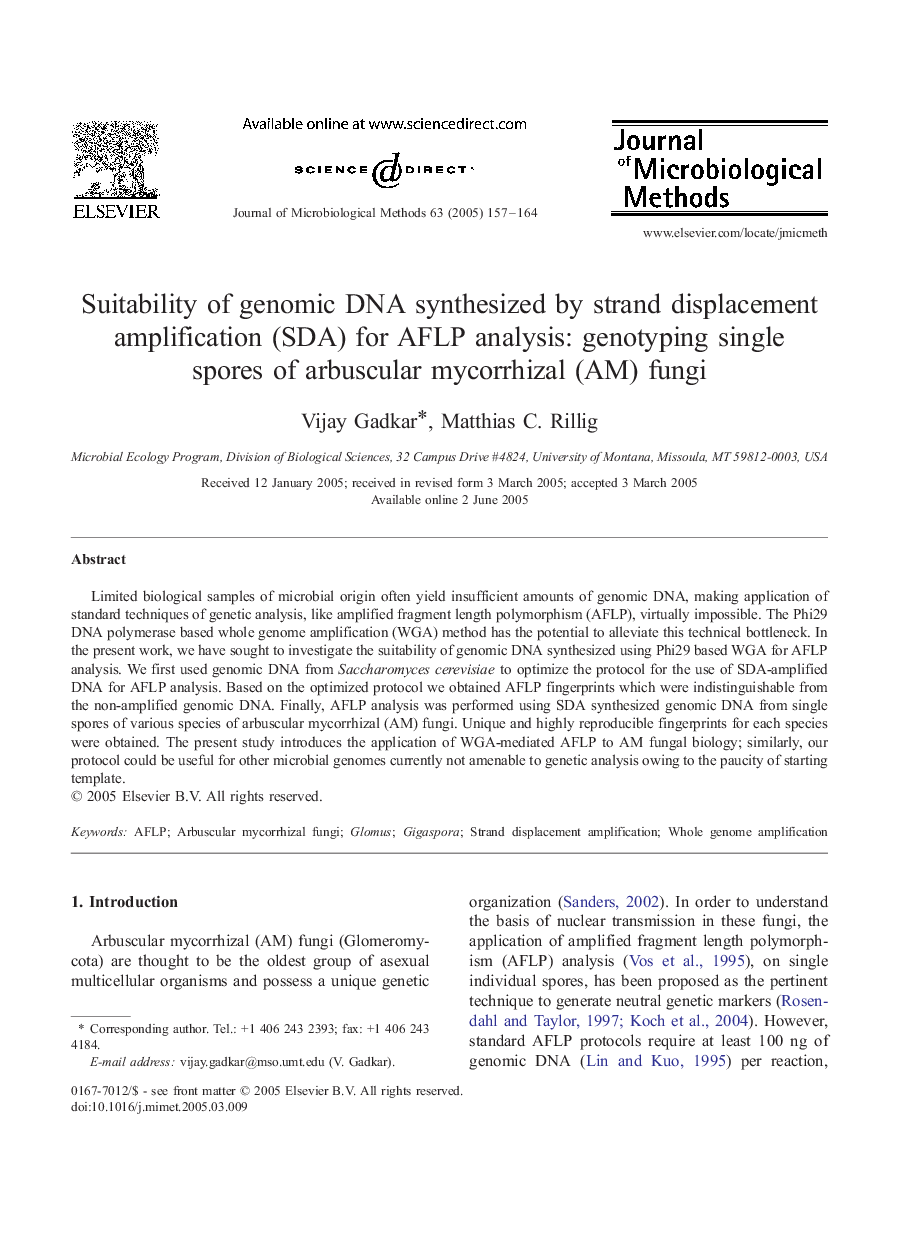| Article ID | Journal | Published Year | Pages | File Type |
|---|---|---|---|---|
| 10890716 | Journal of Microbiological Methods | 2005 | 8 Pages |
Abstract
Limited biological samples of microbial origin often yield insufficient amounts of genomic DNA, making application of standard techniques of genetic analysis, like amplified fragment length polymorphism (AFLP), virtually impossible. The Phi29 DNA polymerase based whole genome amplification (WGA) method has the potential to alleviate this technical bottleneck. In the present work, we have sought to investigate the suitability of genomic DNA synthesized using Phi29 based WGA for AFLP analysis. We first used genomic DNA from Saccharomyces cerevisiae to optimize the protocol for the use of SDA-amplified DNA for AFLP analysis. Based on the optimized protocol we obtained AFLP fingerprints which were indistinguishable from the non-amplified genomic DNA. Finally, AFLP analysis was performed using SDA synthesized genomic DNA from single spores of various species of arbuscular mycorrhizal (AM) fungi. Unique and highly reproducible fingerprints for each species were obtained. The present study introduces the application of WGA-mediated AFLP to AM fungal biology; similarly, our protocol could be useful for other microbial genomes currently not amenable to genetic analysis owing to the paucity of starting template.
Keywords
Related Topics
Life Sciences
Biochemistry, Genetics and Molecular Biology
Biotechnology
Authors
Vijay Gadkar, Matthias C. Rillig,
